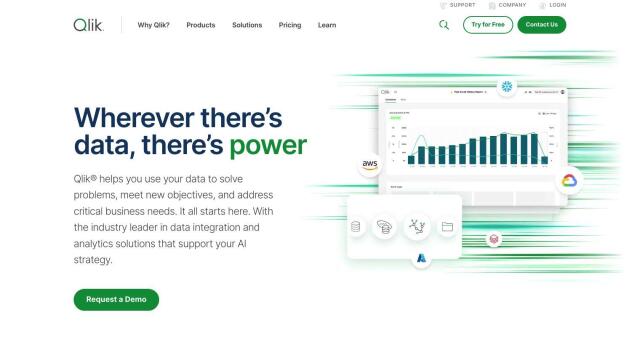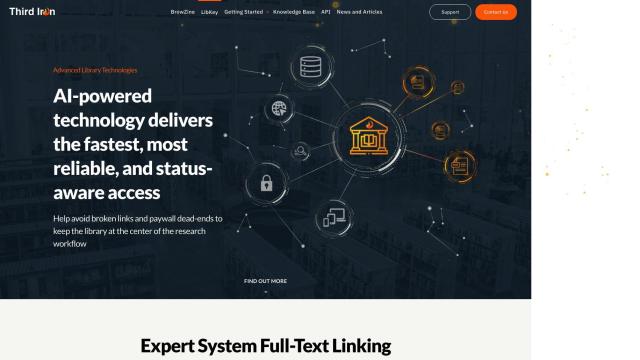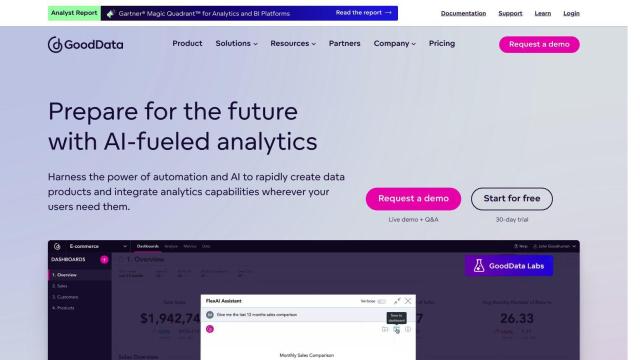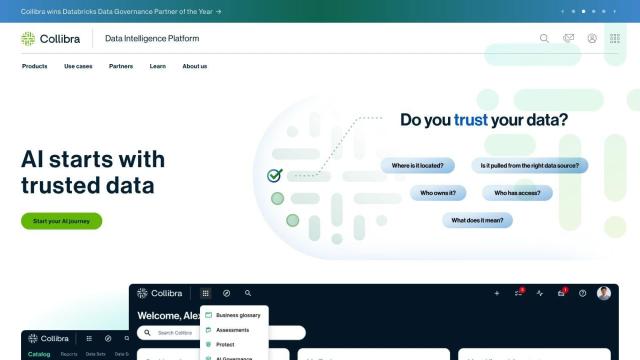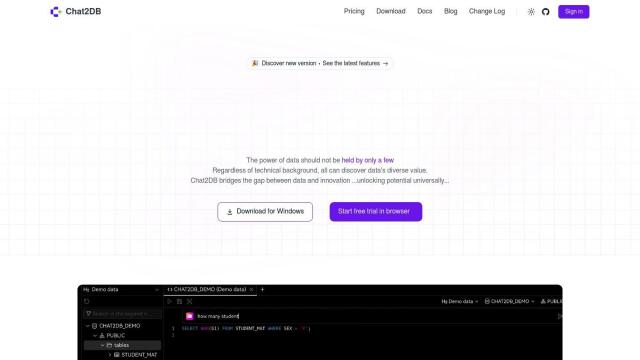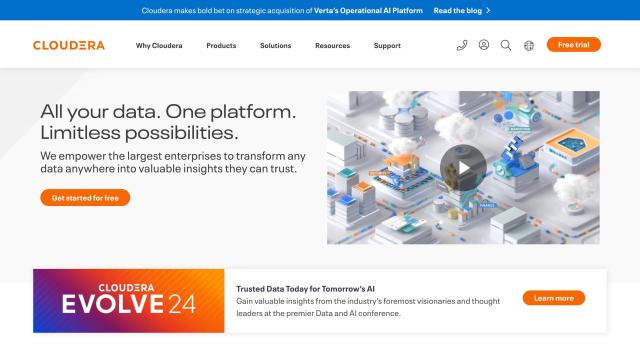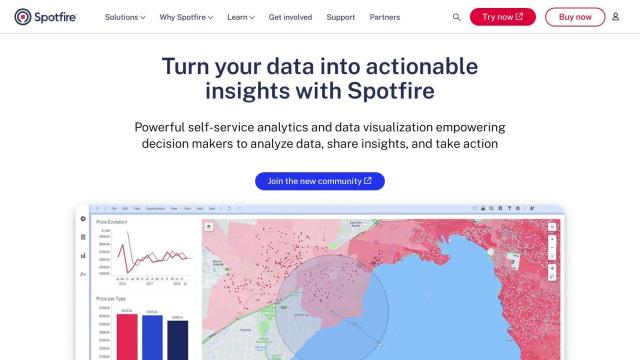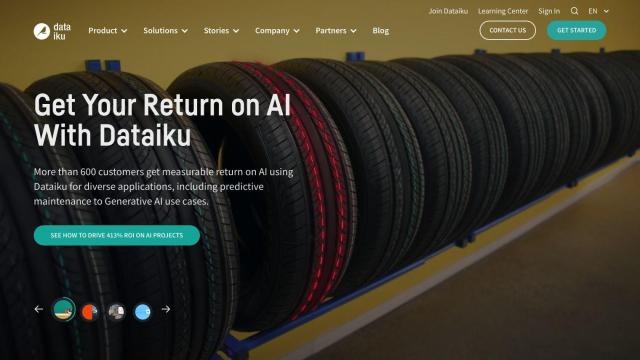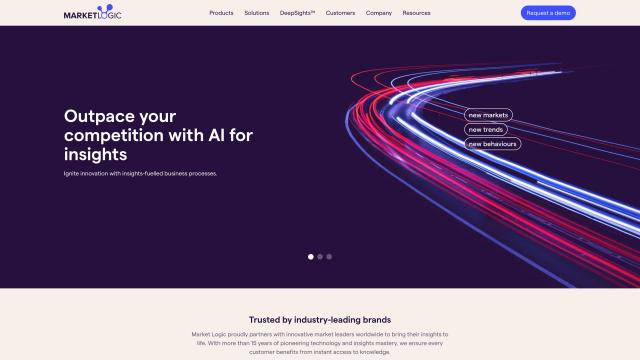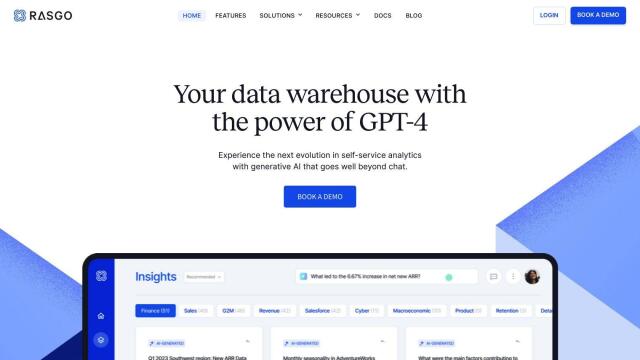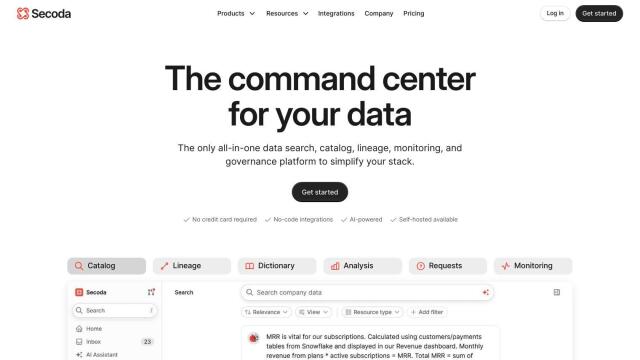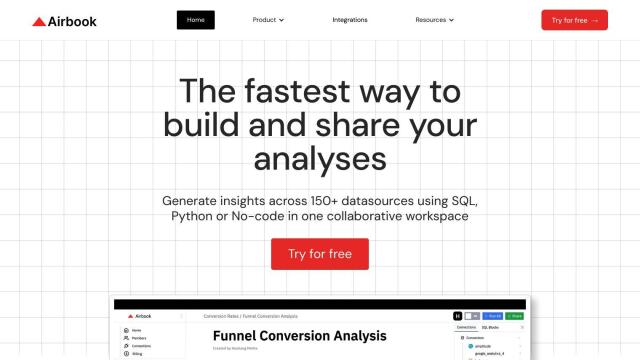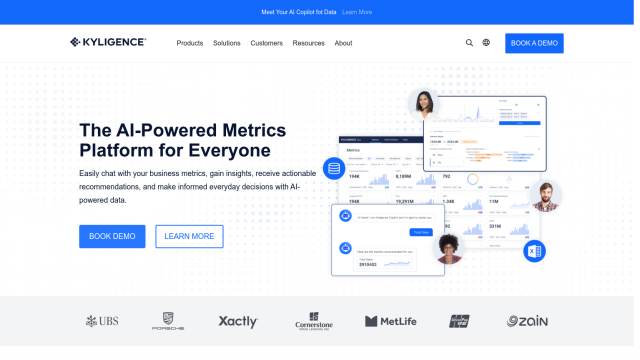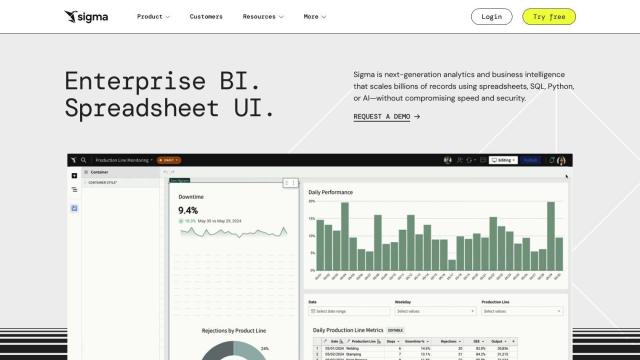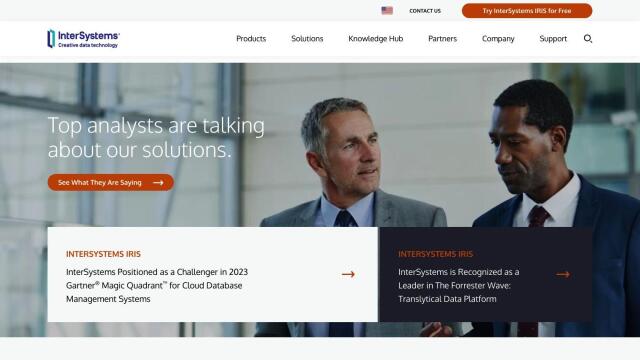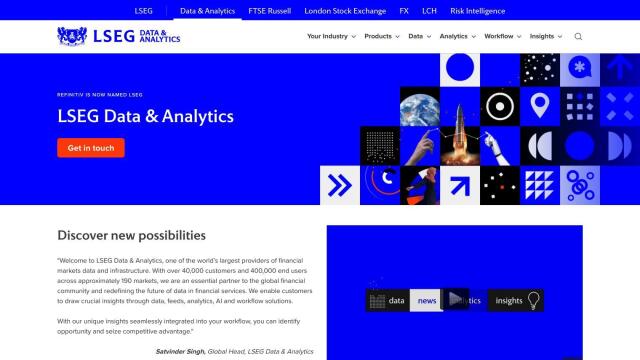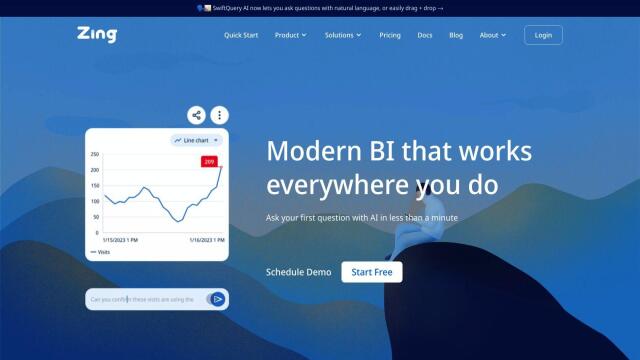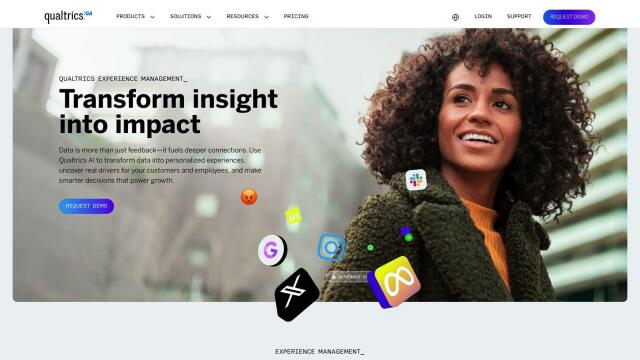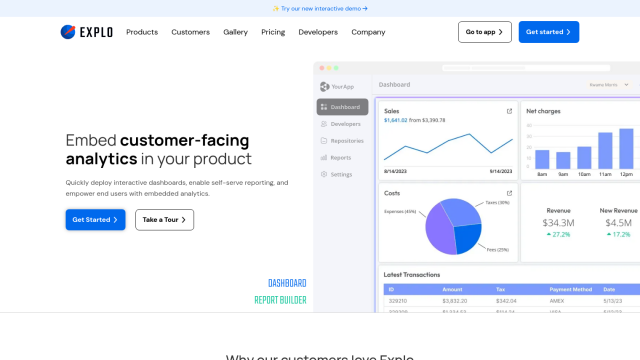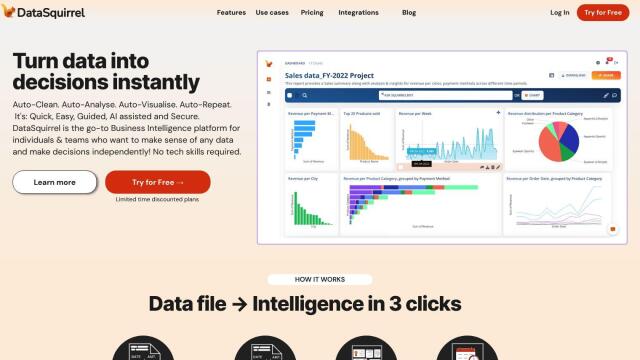Question: Can you recommend a library management system that provides data analytics and insights for informed decision-making?

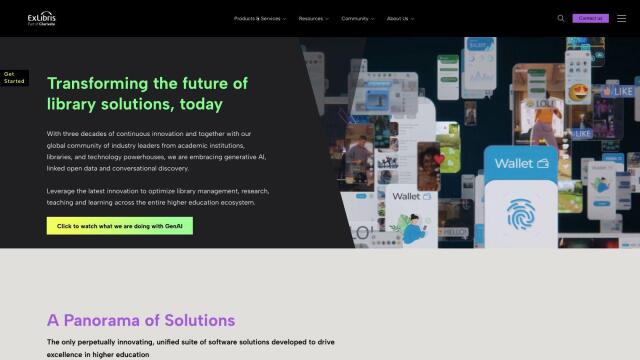
Ex Libris
For a comprehensive library management system with data analytics and insights, we recommend Ex Libris. This platform incorporates emerging technologies like generative AI and linked open data to provide a more efficient way to manage resources and gain deeper insights. It includes tools like Alma, Rapido, Leganto, Rosetta, and Primo to engage users and improve library operations. Ex Libris serves libraries of all sizes, helping them make better decisions with better resource allocation and user experience.

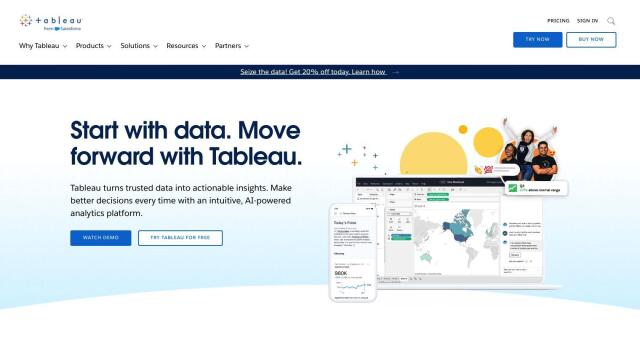
Tableau
Another great option is Tableau, a business intelligence and analytics platform that's famous for its drag-and-drop interface. Tableau connects to many databases to create visualizations that can be shared. It can be deployed in the cloud, on premises, or in Salesforce CRM, so it can fit into your environment. It's great for data democratization and actionable insights, and for making better decisions through its community-based approach and many collaboration tools.

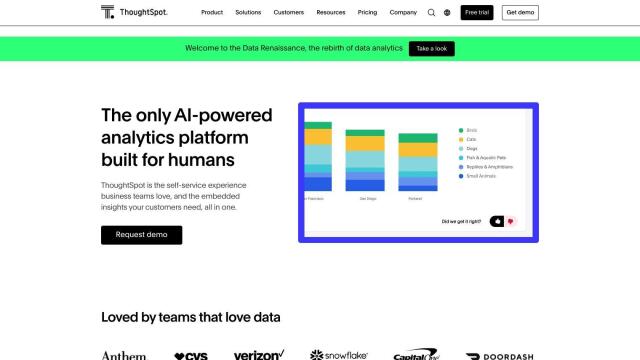
ThoughtSpot
For AI-powered analytics, ThoughtSpot offers a self-service interface where people can ask complex data questions in natural language and get detailed answers. It's good for data-driven decision making and modernizing analytics. With natural language queries, visualization and governance controls, ThoughtSpot is designed to scale for many business needs and industries.

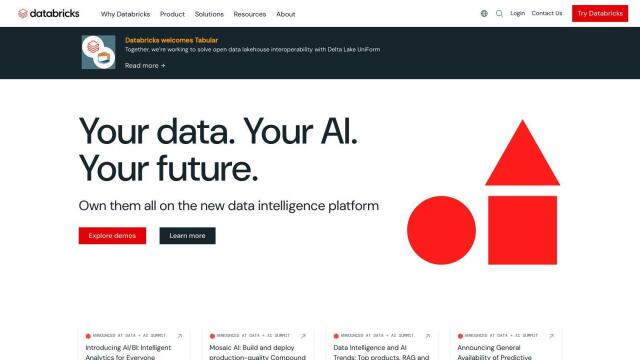
Databricks
Last, Databricks is a data intelligence platform that uses generative AI to link data, analytics and governance. It supports a broad range of tools and integrations, including ETL, data ingestion and business intelligence, so it's a good foundation for building and running AI applications directly against your own data. Databricks offers a free trial so you can try it out in detail.

